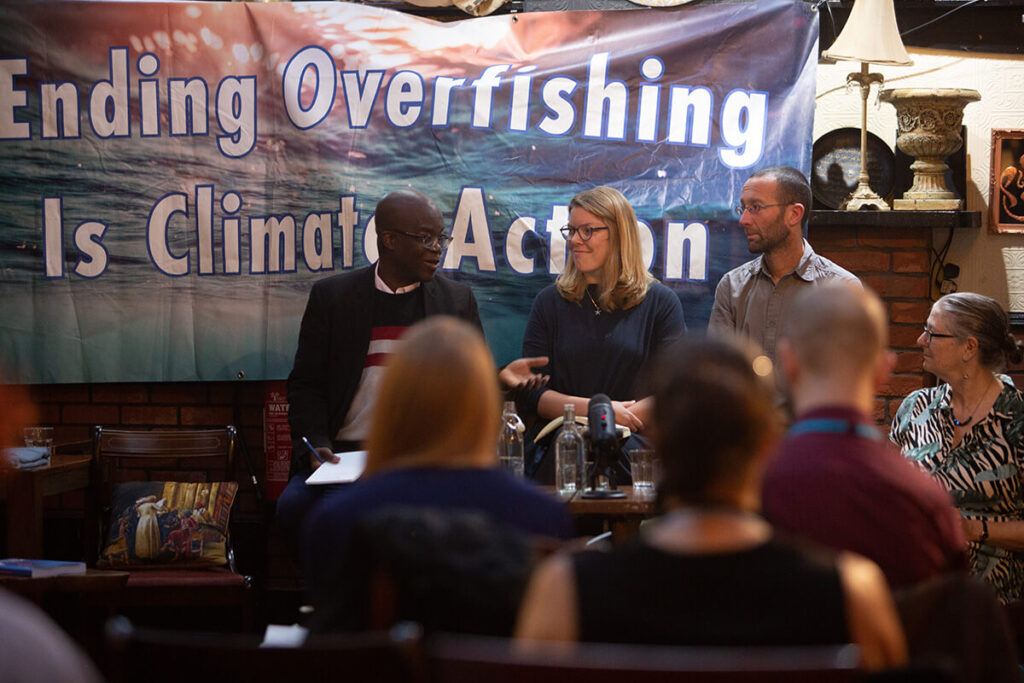
Photo: Jeremy Sutton-Hibbert/Our Fish (click image for more photos)
Glasgow, November 9th, 2021:- During an event jointly organised by Our Fish and Open Seas this morning, Save the Ocean to Save the Climate – Blue Carbon Breakfast Briefing, leading marine biologists, economists, NGOs and a Scottish Labour Advisor to COP26 called for acknowledgement by governments of the critical role played by the ocean in addressing the climate crisis, and for increased focus on monitoring and measuring blue carbon.
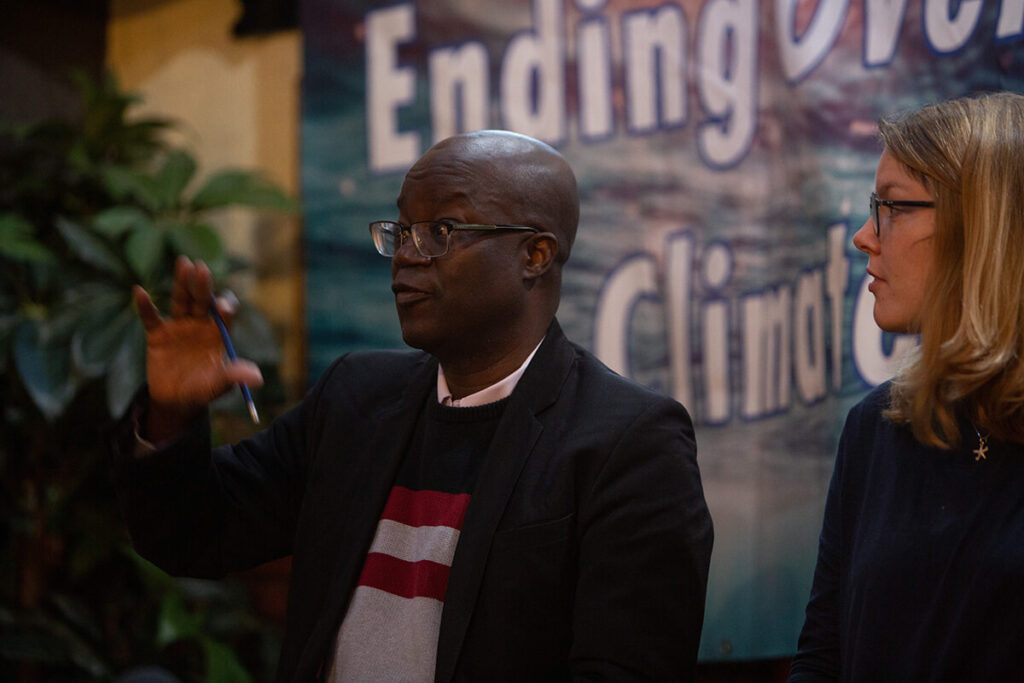
Rashid Sumaila and Emma Cavan. Photo: Jeremy-Sutton Hibbert/Our Fish
“COP26 is a pivotal moment in the response to the global climate emergency, and the urgent need to limit warming to 1.5 degrees”, said Rashid Sumaila, Killam Professor at the University of British Columbia, Vancouver. “While countries are promising to cut emissions, one of our biggest carbon stores, the ocean, is still not being counted – or taken care of. Fishing can and has impacted the ocean’s capacity to store carbon and adapt to climate change, yet emissions from the fishing industry and sequestration from fish and the seabed are not included in nations’ climate action plans, or Nationally Determined Contributions (NDCs). This is a massive missed opportunity, and urgently needs rectifying, especially, as the mitigation of every tonne of CO2 counts.”
“Sustainable fisheries management not only improves food security, it can curb the destruction of marine biodiversity, improve blue carbon stores and cut CO2 emissions – there are so many co-benefits, it should be called a climate super action!”, said Rebecca Hubbard, Programme Director with Our Fish. “Every tonne of CO2 counts, much of which is tied to the ocean; it’s time for world leaders to start demanding that fisheries managers put ocean-climate action at the heart of fisheries management, including in the EU.”
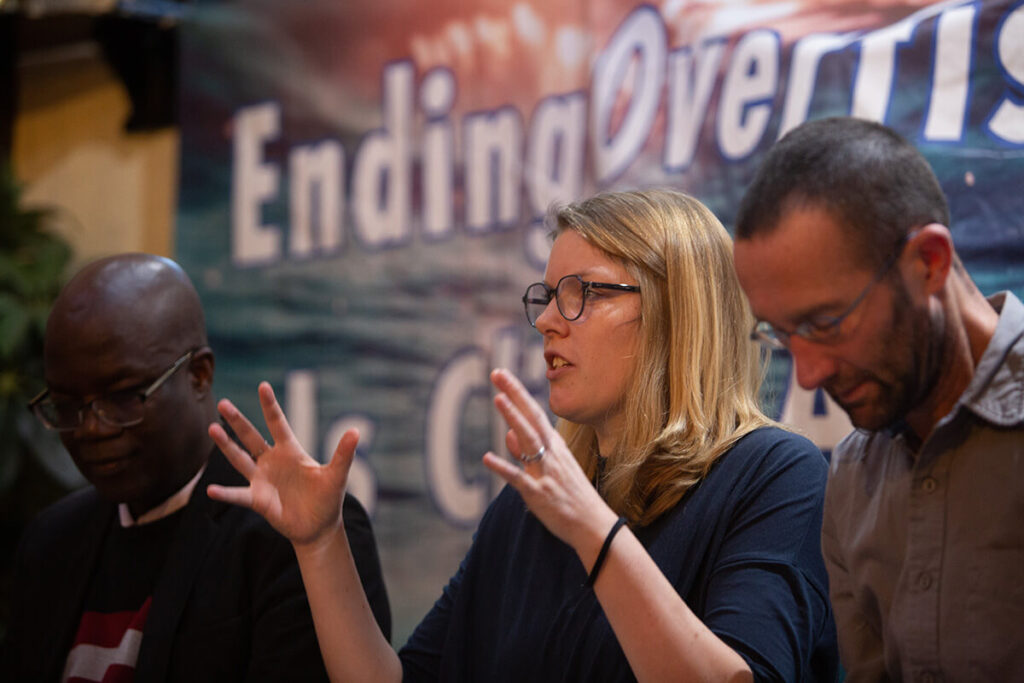
Emma Cavan. Photo: Jeremy Sutton-Hibbert/Our Fish
“If destroying huge volumes of plant and animal life is not enough to stop industrial bottom trawling, perhaps protecting marine carbon sinks will be. Fish and seabed sediments lock carbon away and the life and sediment throughout the ocean depths must remain undisturbed to carry out their vital role in carbon sequestration”, said Emma Cavan, Research Fellow at Imperial College, London.
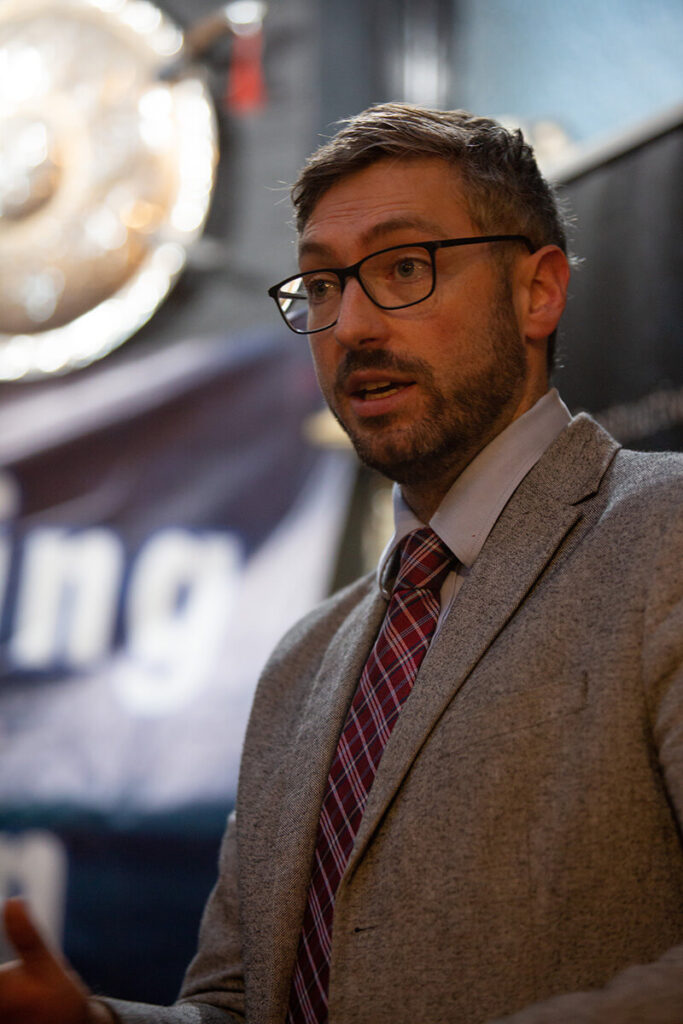
Philip Taylor. Photo: Jeremy Sutton-Hibbert/Our Fish
“There is a massive marine hole in the way that we measure our country’s contribution to climate change. We urgently need to establish a system of accounting for losses of blue carbon habitats and a timeline for its implementation. Scotland has legal duties to protect blue carbon habitats, but our Climate Plan is not delivering this. Every year we lose more of these habitats due to the poor regulation of highly industrialised fishing methods such as scallop dredging, which scrape across the seafloor. For decades a hidden crisis of deforestation at sea has been unfolding – in order to stop this, we need to start counting blue carbon”, said Philip Taylor, Open Seas.
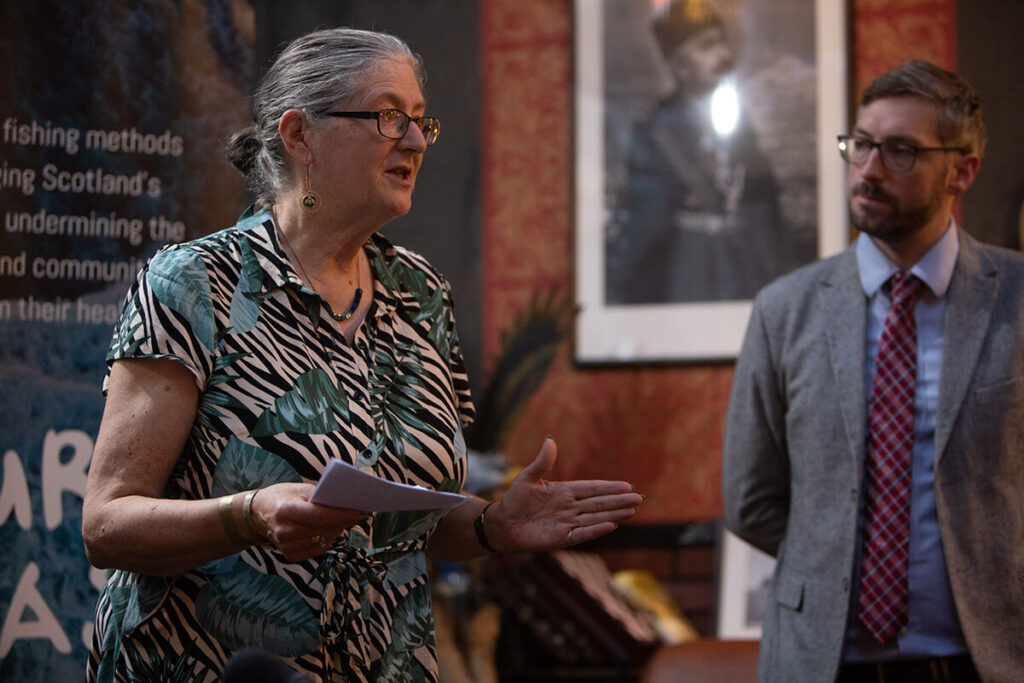
Claudia Beamish. Photo: Jeremy Sutton-Hibbert/Our Fish
“It took far too long, on a cross party basis, to get peatlands into the greenhouse gas inventory and for community action on peatlands protection and restoration to be supported. No more Scottish and UK governments’ procrastination on blue carbon – we know enough to act now – no more excuses! No time to lose!”, said Claudia Beamish, former Member of Scottish Parliament and Special Advisor to the Scottish Labour Group on COP26.
ENDS
Photo & Video
Contacts
Dave Walsh, Our Fish Communications Advisor, +34 691 826 764 press@our.fish
Notes:
Emma Cavan is a Research Fellow at Imperial College, London
https://www.imperial.ac.uk/people/e.cavan
Rashid Sumaila is a University Killam Professor at the University of British Columbia, Vancouver
https://oceans.ubc.ca/rashid-sumaila/
Article: Fish and the Ocean Play A Crucial Role In Regulating Our Climate and Should Not Be Consigned to COP26 Sidelines – Emma Cavan, Erica M. Ferrer and U. Rashid Sumaila
https://our.fish/news/fish-and-the-ocean-play-a-crucial-role-in-regulating-our-climate-and-should-not-be-consigned-to-cop26-sidelines/
About Open Seas
Open Seas undertakes research, investigations and campaigns to improve the health of Scottish and UK seas and the sustainability of our seafood. A Scottish charity, we work with key people in coastal communities, seafood supply chains and government decision-makers.
About Our Fish
Our Fish is working to end overfishing and restore a healthy ocean ecosystem. By collaborating with others, and deploying robust evidence, we are calling for an end to overfishing as a critical and significant action to address the biodiversity and climate crisis. https://our.fish
